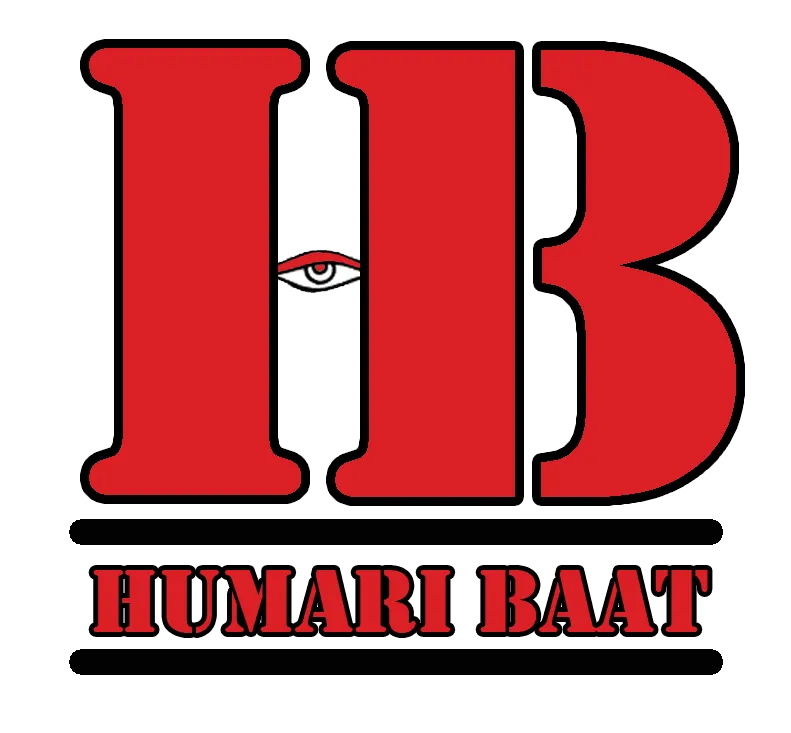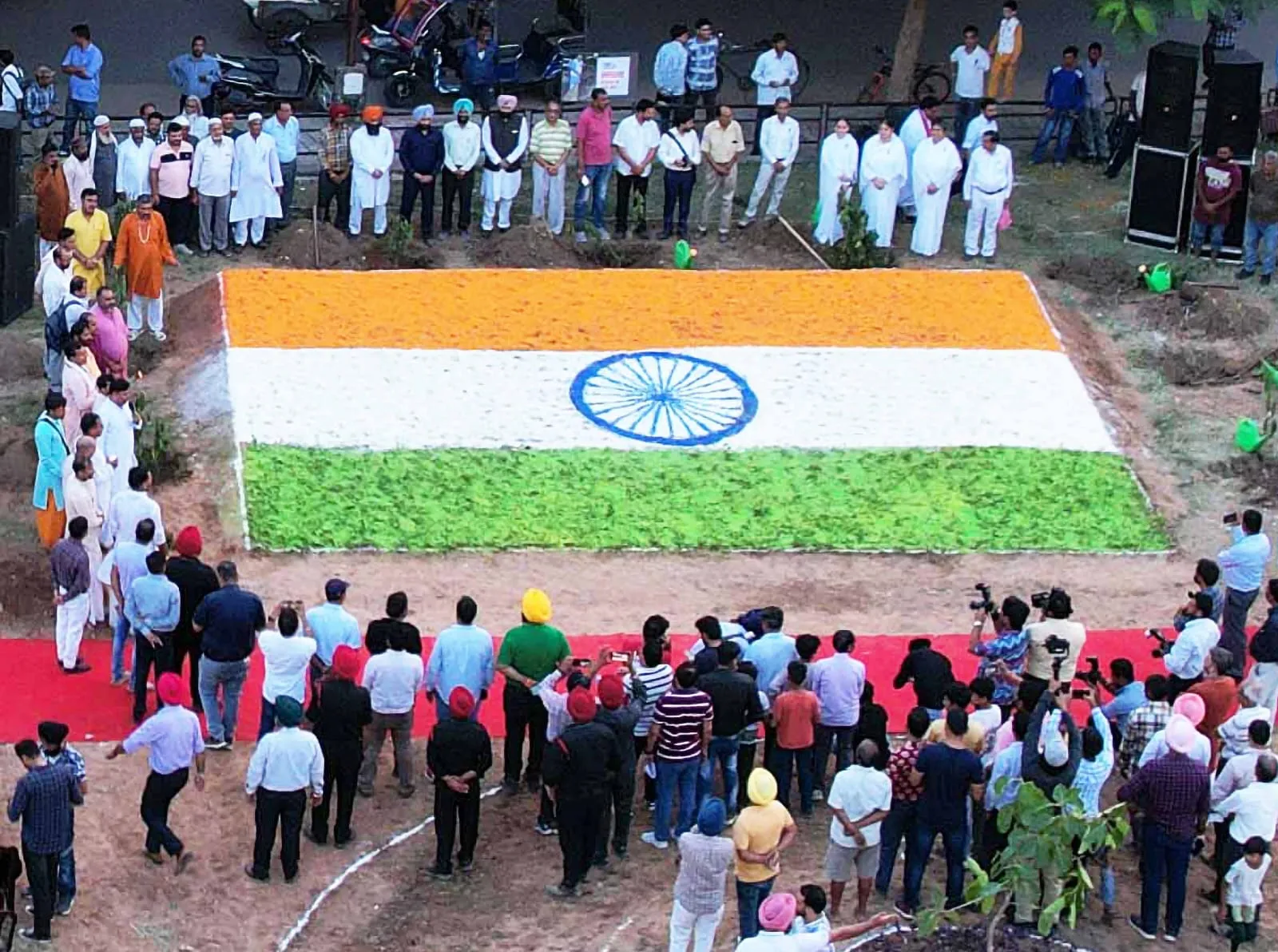Chandigarh Welfare Trust’s Symbolic Campaign Fosters Religious Harmony, Promotes Shared Responsibility for a Pristine India
Chandigarh: In pursuit of the noble vision of a Clean India, a myriad of religious leaders converged during the mega cleanliness campaign orchestrated by the Chandigarh Welfare Trust (CWT). Their message of ‘Akhand Bharat’, symbolizing the undivided spirit of India, echoed through the event, marking a significant step towards a united and Swachh Bharat (Clean India). This remarkable initiative became more than just a cleanliness drive; it transformed into a powerful representation of religious unity and collective responsibility towards building a strong and pristine India.

In the heart of Manimajra, a park emerged as a potent symbol of this unity, becoming the focal point for diverse religious communities to showcase their concerted efforts. Under the banner of CWT’s symbolic cleanliness campaign, adherents of Hinduism, Islam, Christianity, and Sikhism came together to promote the virtues of cleanliness. The campaign was not merely a local endeavor but a collaborative effort organized in partnership with the Chandigarh Municipal Corporation. It was aptly named ‘Swachhanjali,’ a tribute to Mahatma Gandhi, emphasizing the ethos of cleanliness encapsulated in the phrase ‘One Date One Hour Together.’
The day-long cleanliness drive attracted an overwhelming response from the community, demonstrating that the pursuit of cleanliness and hygiene is a shared responsibility. Approximately 2000 volunteers, along with 250 sanitation workers and hundreds of residents from Manimajra, actively participated in the drive. Their collective engagement reflected the essence of Prime Minister Narendra Modi’s vision for a clean and tidy India. The event unfolded as a testament to the power of unity, with religious leaders, residents, and volunteers joining forces to clean different parts of Manimajra, spreading the message of hygiene and cleanliness.
The initiative, inaugurated by CWT Founder Satnam Singh Sandhu and Chandigarh MC Commissioner Anindita Mitra, commenced at Upal Arch Flats near Shani Mandir in Manimajra. From there, the campaign traversed through the bustling Car Market and Motor Market of Manimajra before culminating at Shivalik Park. This park, now aptly renamed ‘Akhand Bharat Park,’ stood as a living embodiment of unity and harmony among the diverse communities of India. The participants, representing various faiths, wholeheartedly embraced the cause, expressing their commitment to cleanliness and taking an oath to devote their time and effort towards this endeavor.
Satnam Singh Sandhu, the visionary founder of CWT, expressed his overwhelming sentiment witnessing people from all religious backgrounds come together for a shared cause. He emphasized the significance of achieving Swachh Bharat as a collaborative effort, lauding the visionary leadership of Prime Minister Modi, who transformed the Swachh Bharat Abhiyan into a ‘people’s movement.’ Sandhu highlighted how this movement had gained momentum, becoming an integral part of the lifestyle of Indian citizens, thanks to the inspiration derived from PM Modi’s vision.

The event drew praise and support from various quarters, reflecting the widespread acknowledgment of the importance of cleanliness. Kaka Khan, speaking on behalf of the Muslim community, underlined the religious significance of cleanliness and praised Prime Minister Modi’s dedication to fostering cleanliness in the country. Brahma Kumari Mukesh Didi echoed similar sentiments, highlighting the symbolism of people from diverse faiths uniting to achieve the goals of cleanliness and a Swachh Bharat.S.S. Randhawa, the President of the Senior Citizens Association, emphasized the pivotal role of cleanliness in nurturing a hygienic environment. He envisioned a future where India would pass on the legacy of cleanliness to the next generations. Anil Masih spoke about the importance of cleanliness in Christianity, underscoring how it purifies both the body and mind from negative thoughts.
Colonel Gursevak Singh, the President of the Resident Welfare Association (RWA), hailed the renaming of the park as ‘Akhand Bharat Park’ as a symbol of unity. He commended Prime Minister Modi’s transformative efforts, which turned the cleanliness drive into a mass movement, leading to significant milestones over the past nine years. The eradication of open defecation and the provision of tap water in all households across the country’s villages have substantially improved the lives of millions of Indians who faced these challenges for decades.This mega cleanliness drive unfolded as part of the nationwide celebration of ‘Seva Pakhwada,’ commencing on September 17, coinciding with Prime Minister Narendra Modi’s 73rd birthday. The event aimed to raise awareness about the benefits of sanitation and a clean environment. Moreover, it sought to address pressing global concerns like climate change, emphasizing the need for concerted efforts to combat these challenges. As a testament to their exceptional dedication, 18 sanitation workers from the Chandigarh Municipal Corporation were honored with the Swachhta Samman, recognizing their pivotal role in making the city clean.In essence, this mega cleanliness campaign orchestrated by the Chandigarh Welfare Trust encapsulated the spirit of unity, responsibility, and shared commitment. It was not merely an event but a profound demonstration of how diverse communities, when united under a common goal, can achieve remarkable feats. The event not only contributed to the immediate cause of cleanliness but also served as an inspiring example for future initiatives, showcasing the power of unity in fostering positive change. As India continues its journey towards a cleaner, greener, and more sustainable future, initiatives like these stand as guiding lights, illuminating the path towards a Swachh Bharat for generations to come.




